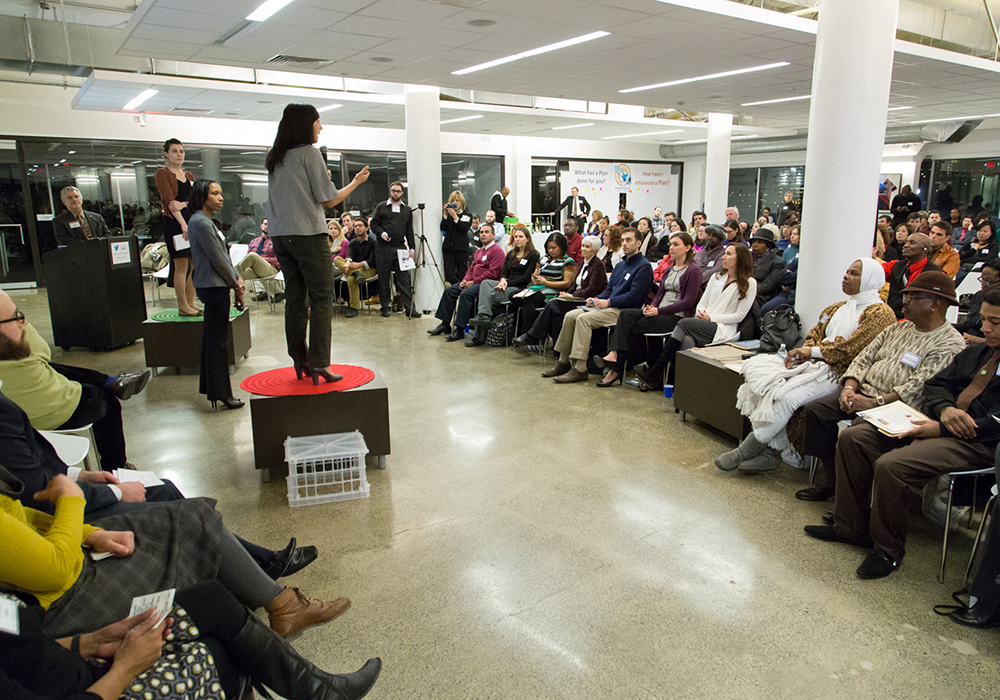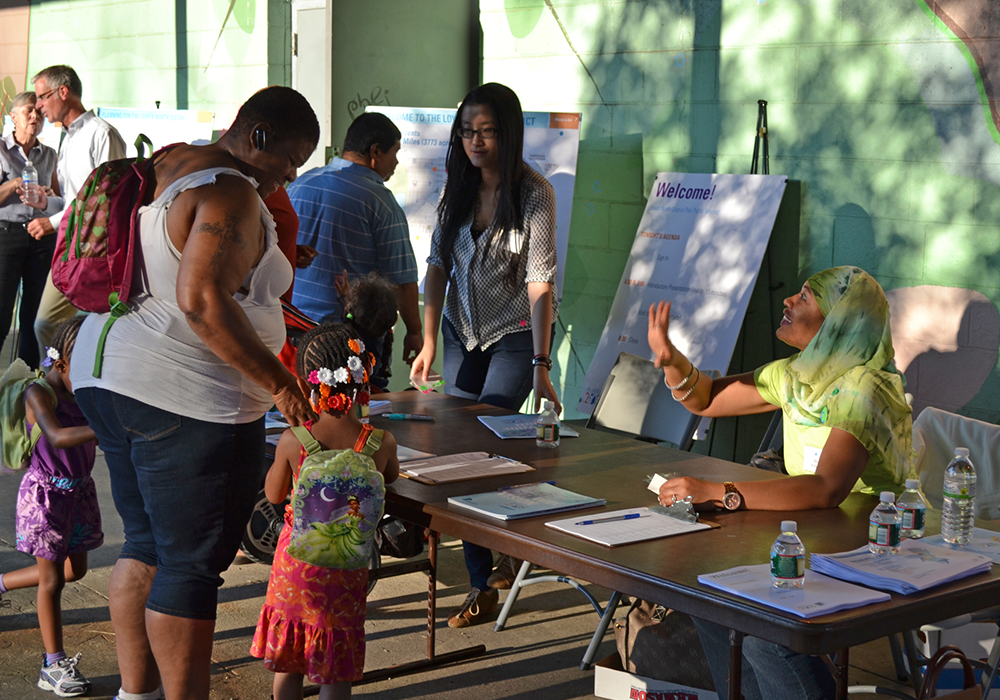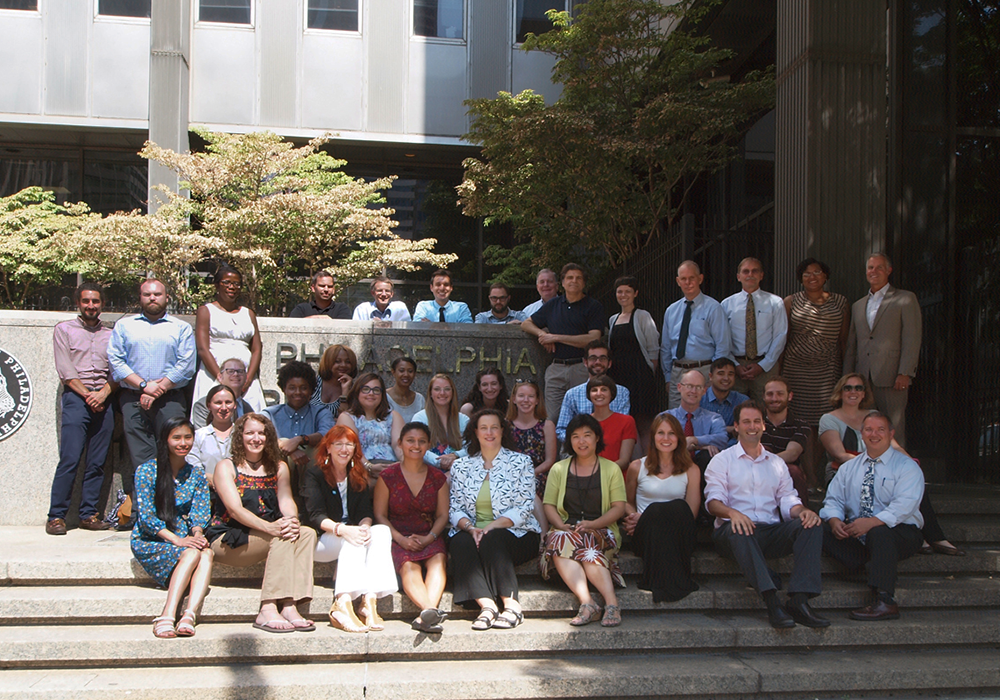Philadelphia, Pennsylvania
Philadelphia City Planning Commission
2016 National Planning Excellence Award: Planning Agency
Summary
The Philadelphia City Planning Commission guides the development efforts of the fifth-largest city in the U.S. The staff of the Commission handles daily zoning, environmental, and design reviews, conducts research, and provides planning education to the public. In addition, the staff is working on its new comprehensive plan Philadelphia2035.
Process
The Philadelphia City Planning Commission (PCPC) works to ensure a consistent, high-quality built environment. The PCPC has 47 staffers ranging from executives to planners to administrative staff. Fourteen of the staff members are AICP certified. PCPC staff performs the majority of the outreach, design, and creation for many of its planning initiatives.
The PCPC is currently working on the city's comprehensive plan Philadelphia2035. The plan is to bring together the public, city agencies, elected officials, and major institutions to discuss a vision for the city for the next 25 years. Philadelphia2035 includes an adopted citywide vision for planning and 18 smaller District Plans for each part of the city. Ten of the 18 District Plans have been completed and begun implementation and currently, three are underway.
Before starting the comprehensive plan update, the Commission spearheaded a new zoning code that was adopted in 2011. Other Commission work includes the City's annual six-year capital program; the first Bicycle and Pedestrian Plan; the Trails Master Plan; the Center City Parking Survey; the Frankford Creek Greenway Feasibility Study; and the Brownfields Area-wide Plan.

Citizens Planning Institute annual event.
Engagement
The PCPC has been instrumental in increasing awareness about the importance of planning and garnering community support. The Citizen Planning Institute is the educational arm of the agency and offers courses to citizens on planning, zoning, and development. Many of the instructors are PCPC staff.
Outreach efforts vary and include social media channels, a community representative seat on the Civic Design Review Board, an active list-serve, and new platforms like Textizen used to ask targeted questions for several district plans. The PCPC was one of the first government agencies to use Textizen.
The PCPC also coordinates the Registered Community Organization (RCO) process. This enables community groups to register with the city to receive formal notices for any projects that require a zoning variance. This program furthers the opportunity to foster community engagement in the development process.

Lower North District public meeting.
Results
Engaging the public in the planning processes of the PCPC has illustrated the need for good planning of the built environment. Stakeholders experience first-hand how planning addresses many community concerns, including housing choices; well-maintained libraries; parks and recreation centers; strong transportation systems; access to healthy food, and vibrant commercial corridors.

Staff of the Philadelphia Planning Commission, Fall 2015.


